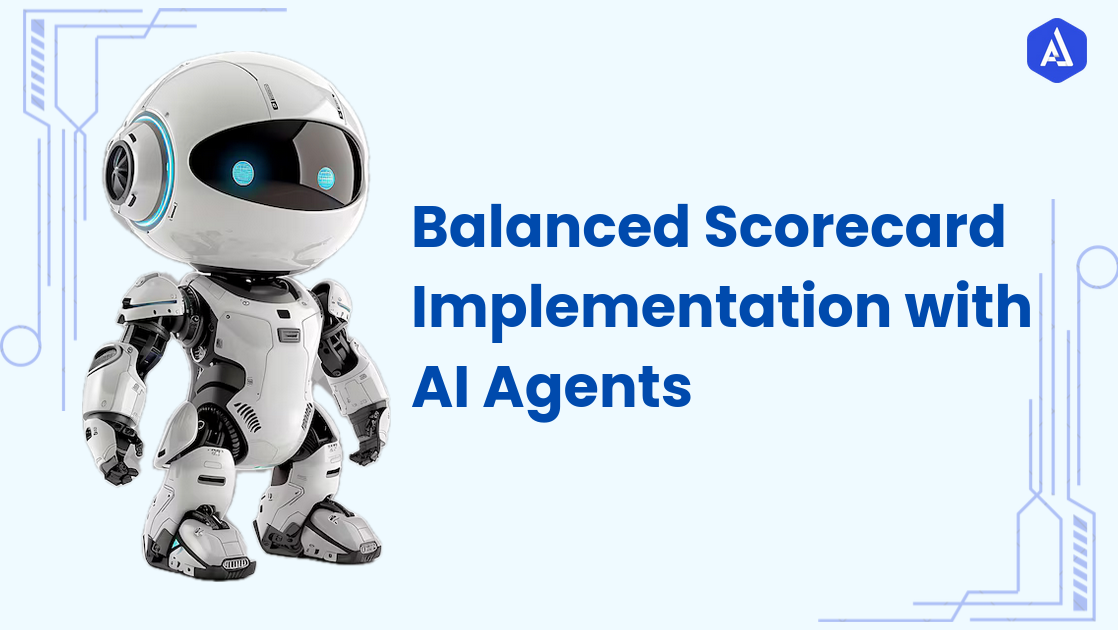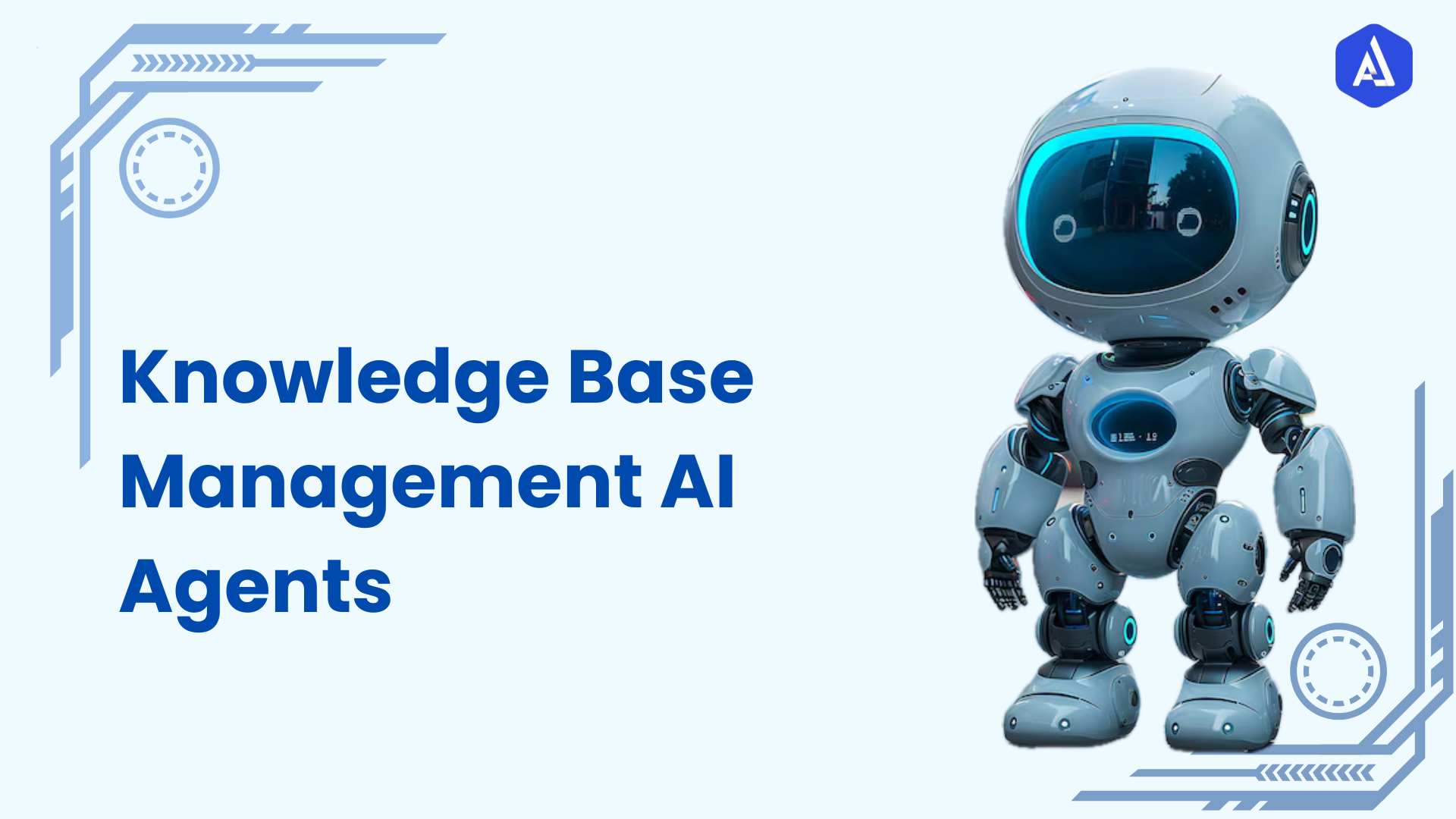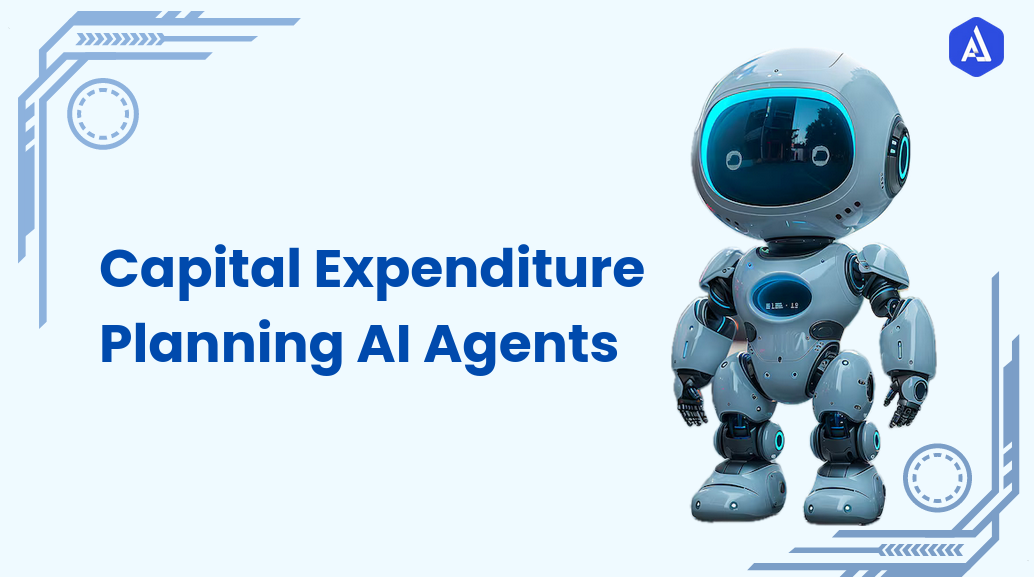In today’s fast-paced business world, goal alignment and efficient tracking are critical to success. Traditional OKR (Objectives and Key Results) processes, while effective, often rely on manual effort, making them time-consuming and prone to inefficiencies. Imagine a scaling startup struggling to keep teams aligned amidst rapid growth—meetings, spreadsheets, and miscommunications derail progress.
Enter AI-powered OKR tracking agents, the innovative solution transforming how businesses manage goals. This isn’t just about technology; it’s about empowering teams to focus on outcomes, not processes.
Discover how Agentic AI OKR tracking agents can help your organization streamline workflows, boost efficiency, and achieve goals with precision and agility. Move from ambition to achievement—faster than ever.
About the Process
OKR tracking has always had multiple documented steps, such as setting objectives, key results, tracking, and reviewing the results. This process is very often based on the use of charts, project management software and regular meetings.
-
Objective Setting: The factual goals of teams and individuals are challenging and oriented at the achievement of the overall organizational objectives.
-
Key Results Definition: Key measures are then established to monitor the achievement of the objective at an implementable level.
-
Progress Tracking: Statuses of important outcomes are ascertained through collecting and assessing updates on regular bases.
-
Evaluation and Adjustment: The key activities in the objectives and key results are typically revisited and altered from time to time depending on available performance information and prevailing business environment.
Synergizing with AI Agent
Integrating an AI agent into this process enhances efficiency and effectiveness in several ways:
-
Automated Data Collection: AI agents can extract data from multiple sources inclusive of pertinent project management tools, CRMs, and analytical tools and this minimizes the probabilities of error throughout the whole process.
-
Real-Time Insights: AI means instant feedback on major outcomes, highlights risks and possible deviations.
-
Data-Driven Refinement: With reference to past performance, AI agents can be able to suggest more realistic yet on the same note, challenging targets for future operational cycles.
-
Cross-Functional Collaboration: For instance, one team may work towards a goal set by another due to their aligned OKRs, relationships Ai can uncover, potential cooperation chances that may be missed.
Talk about the OKR Agent
The designed AI agent for OKR tracking is meant as an optimal extension to the already established process. Here are its key capabilities and design elements:
Capabilities
-
Capture and integrate data from the different sources in an innovative and faster way possible.
-
Several: Monitoring and tracking progress in real time.
-
Quantitative techniques within the predictive modeling framework to estimate the probability of achieving performance outcomes.
-
Individual consultations for team members and further counselling.
-
Co-ordination of inter-organizational relationships with other departments.
Design
-
The AI agent is created using numerous machine learning algorithms that comprehend humans’ language, as well as the conversion of OKRs into measurable results.
-
Some of the integrations are through APIs and data pipelines with multiple project management tools, CRMs, analytics and others.
-
The agent is expected to be informed by previous cycles of the OKR methodology with emphasis to the planning and execution of subsequent complete cycles.
Integration
-
It positively supplements the current OKR tracking practice without changing it – the AI agent can be easily connected to other workflows.
-
It has a simple and easy to use interface with the teams to be able to work on, thereby allowing for quick uptake and little to no resistance from the teams.
Benefits and Values of OKR Tracking Agents
The integration of an AI agent into the OKR tracking process offers several key benefits:
-
Improved Efficiency: Employing new technologies to gather data and or analyze saves time and reduces the burdens on teams.
-
Enhanced Decision-Making: The timely analysis and developing trends would allow the right decisions and timely corrections of the direction.
-
Increased Alignment: As organizational execution entities, AI agents guarantee that everyone and every group is aligned to produce the company’s intended outcomes.
-
Cost Savings: Less work and the effective utilization of resources lower expenditures.
-
Enhanced Performance: From this perspective, it becomes clear how the work done by people helps business; such guidance significantly increases efficiency and a feeling of relevance, which are offered by AI agents.
Use Cases of OKR Tracking Agents
AI agents for OKR tracking can be applied in various scenarios and contexts, illustrating their adaptability and effectiveness:
-
Automated OKR Alignment: AI agents can view organizational goals from a company standpoint or from any departmental level and advise where everybody should move in line with the objectives.
-
Real-Time Progress Tracking: This practice offers real-time views of outcomes while offering an early warning system for obstacles long before they emerge as problems.
-
Data-Driven OKR Refinement: Benchmarking throughput and cycle times is used to recommend more realistic yet stretching targets for subsequent periods.
-
Cross-Functional Collaboration Boost: AI completes the analysis of synergies between various teams’ OKRs, which create cooperation prospects.
Industry-Specific Use Cases
-
High-Growth Tech Startups: It is important to note that AI agents support scaling plans by identifying targets from historical organizational performance data, market conditions, and competitors to support stretching goals.
-
E-commerce: Now, Amazon, for instance, deploys AI agents across the organization, who are able to offer end-to-end views on business performance and new OKRs, grounded in emerging patterns.
-
Healthcare: AI agents can assist the various stakeholders in healthcare organizations to integrate the OKR with patient satisfaction, resources and legal requirements for all different teams to be focused on the improvement of patients’ welfare.
Considerations in OKR Agents
Technical Considerations
Implementing an OKR tracking AI agent involves several technical challenges:
-
Data Integration: Carbon Black expected that this AI could extract information from multiple sources, and synchronize project management tools, CRMs, and financial systems into a coherent database.
-
Natural Language Processing: Human language must be translated, the context of the given data must be considered, and OKRs must be transformed into measurable values.
-
Decision-Making Capabilities: The AI needs to grasp business logic, industry trends, correlation between distinct objectives in order to provide a wise recommendation of corrective measures.
Operational Considerations
-
Change Management: The implementation of an AI into the, of OKRs needs to be managed properly so that there is a high level of adoption.
-
Accountability: Deciding who is at fault when things start going wrong and making sure that ratings assigned are objective and accurate.
-
Data Privacy: Maintaining confidentiality of information regarding the company operations, performance and plans, and dealing with security privileges.
-
Continuous Improvement: Refreshment, assessment, and updating of the AI to evaluate where it sees and grows, especially, when the business transforms.
Usability of OKR Agents
The OKR Tracking AI Agents are built with the goal of improving the act of setting and pursuing goals by leveraging artificial intelligence. Here’s how they are used effectively within organizations:
-
Objective Setting: Leverages data and organizational goals to recommend actionable, tailored objectives based on market conditions and past performance.
-
Key Results Definition: Automates the process of defining and refining key results by integrating data from tools like CRMs and project management platforms.
-
Progress Tracking: Continuously monitors progress in real-time, updating objectives and key results with insights from connected systems.
-
Real-Time Insights & Alerts: Provides instant feedback on performance, highlighting risks and enabling quick corrective actions.
-
Data-Driven Refinement: Uses historical data to refine future objectives, ensuring goals are both realistic and ambitious.
-
Cross-Functional Collaboration: Identifies collaboration opportunities across teams, enhancing alignment and efficiency in achieving shared goals.
Future Trends in OKR Agents
The integration of AI Teammates into OKR tracking is a significant leap forward in organizational effectiveness. Here are some potential future developments:
-
Advanced Predictive Analytics: In the future, it would be possible for AI agents to use improved methods to model forecasting to enable making of appropriate recommendations.
-
Enhanced Natural Language Understanding: Getting smarter means that the future AI agents might be able to capture the complex meaning of the natural language used by other humans.
-
Increased Automation: Mastery specification of tasks like meeting preparation, progress report writing & availing of individual coaching.
-
Cross-Industry Applications: They could be customized for various scenarios in finance, education, and a whole range of other fields if the primary focus of goal tracking and achievement is to be pursued.
-
Continuous Learning: AI agents will be proceeding with the utilization of the experience derived from prior cycles of OKR and envision the application of the same experience in the subsequent planning and execution, thus, creating a cycle.
Looking at the state-of-the-art and historical evolution of technology, even higher levels of AI technology can be anticipated in tracking the OKR implementation and execute plans. To implement this AI-driven approach to OKRs, some of the benefits include better organization, execute better, and gain advantage in the industry for the companies willing to adapt.
Next Steps in AI Agents
Talk to our experts about implementing OKR Tracking AI Agents. Learn how industries and departments are leveraging AI-driven workflows and decision intelligence to streamline goal-setting, monitor progress, and drive outcomes, improving efficiency and alignment across teams.


